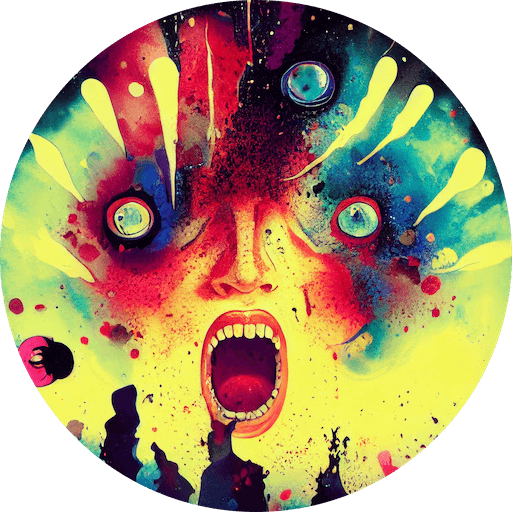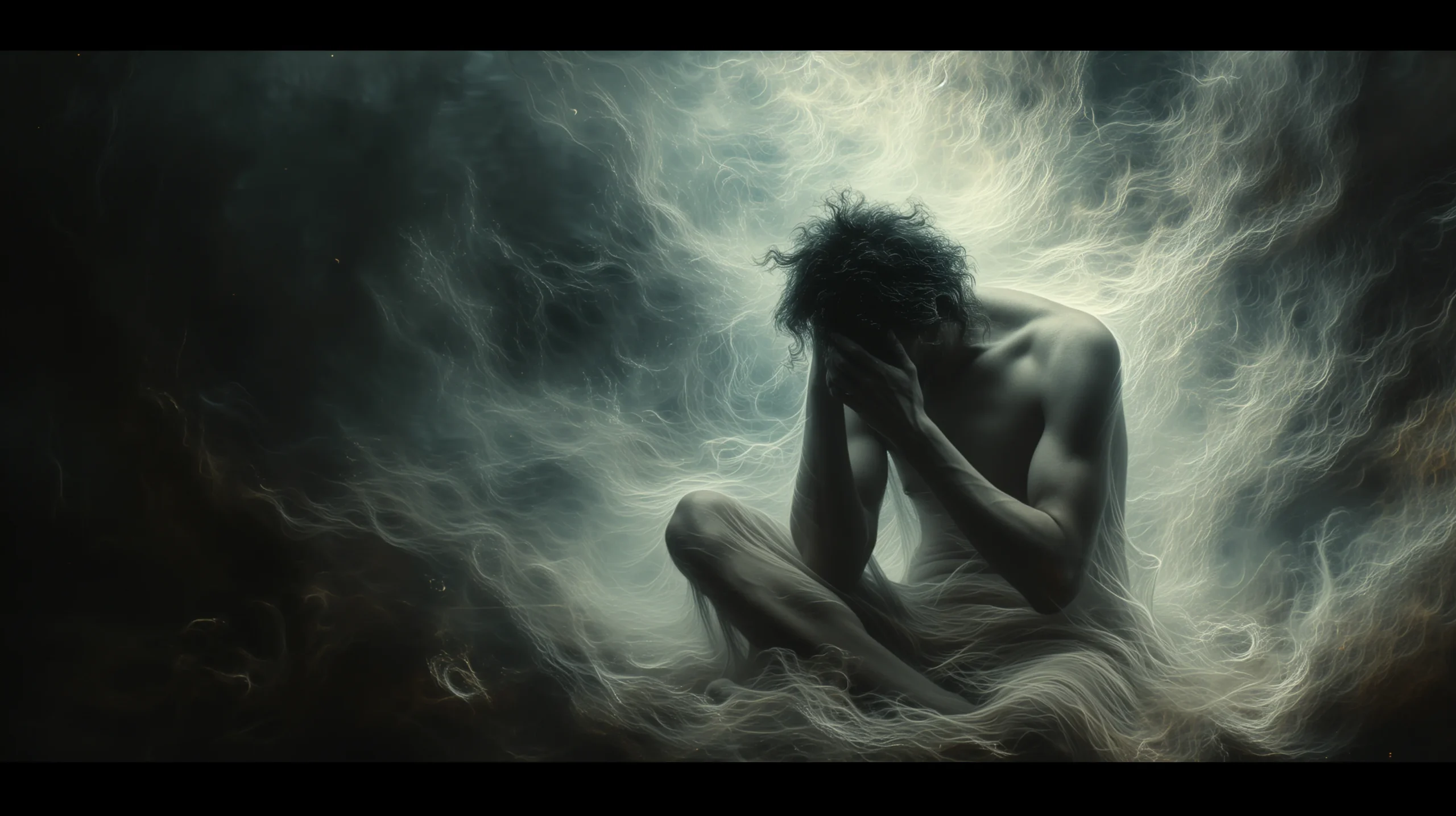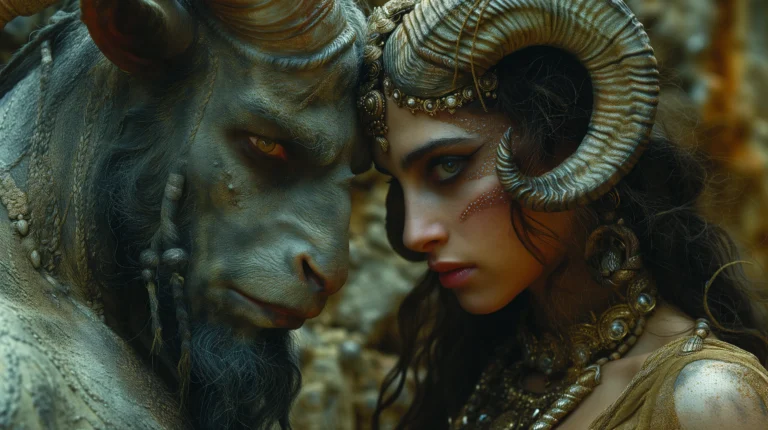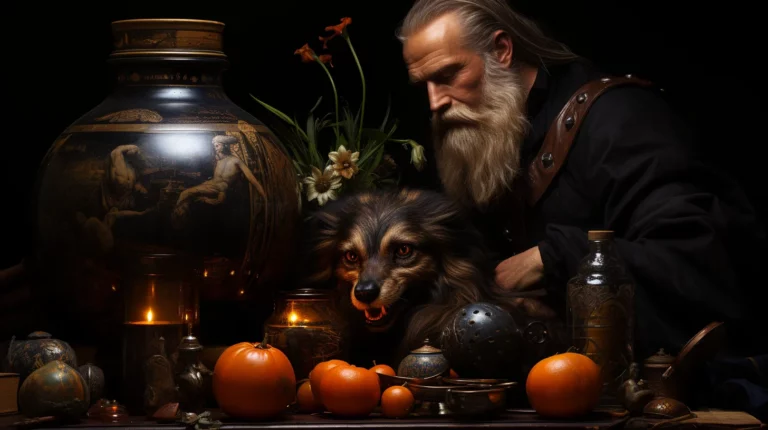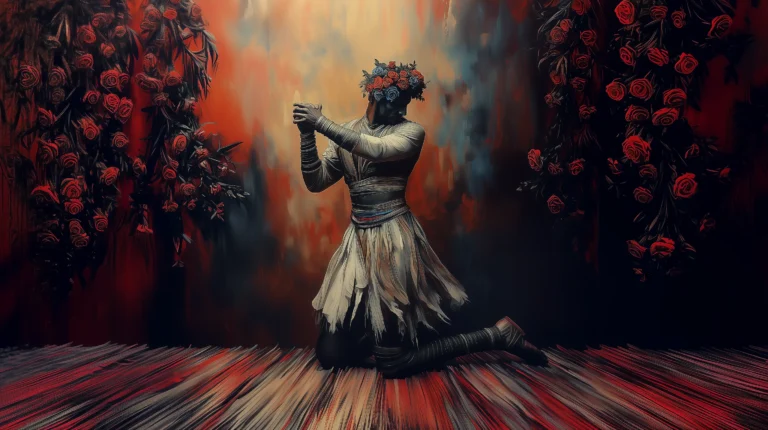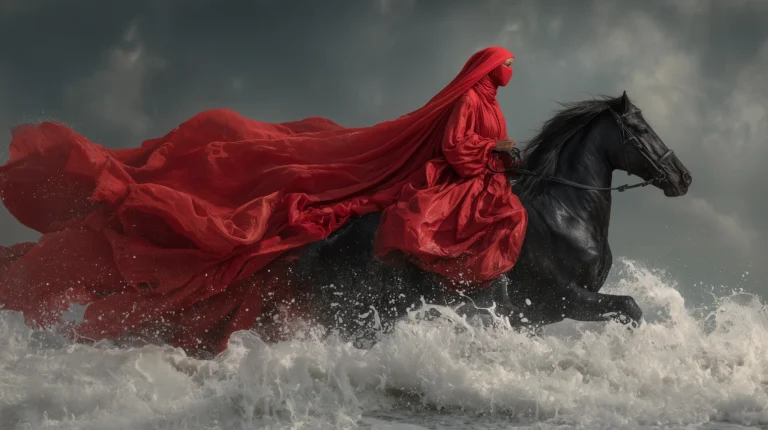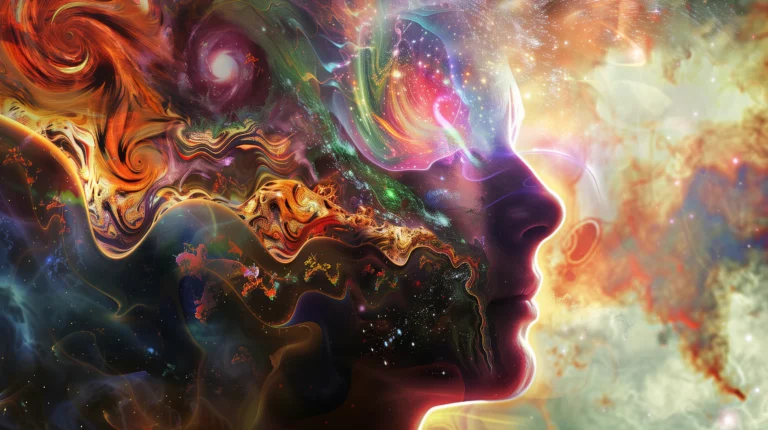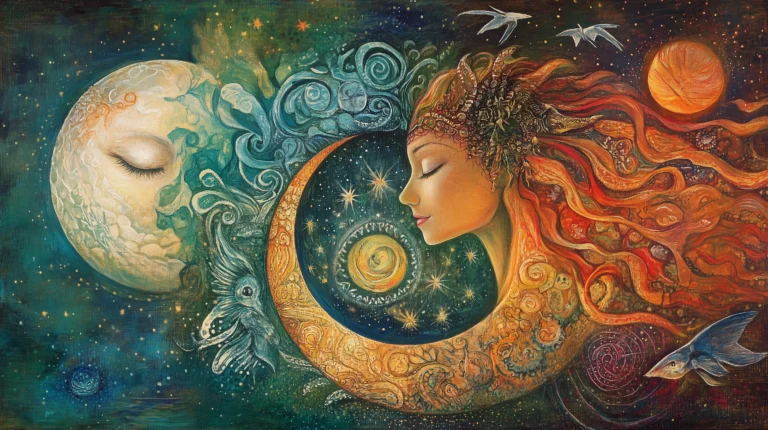Navigating the Abyss
Navigating the Abyss
A Journey Through the Dark Night of the Soul
Embracing the Abyss
In the depths of the human psyche, there lies an uncharted territory, a shadow realm where fear, despair, and the remnants of broken dreams coalesce. This is the abyss, the Dark Night of the Soul, a spiritual and existential crisis that beckons with the promise of profound transformation. To navigate this dark night is to embark on a journey not of external exploration but of inward descent, where the only beacon of light is the flicker of one’s own gnosis—intuitive knowledge that transcends the mere accumulation of facts to touch the essence of being.
The abyss represents the ultimate confrontation with the self. It is where all external supports, beliefs, and illusions are stripped away, leaving one in a state of naked vulnerability. In this desolation, the soul feels abandoned, lost, and without guidance, as if every step forward only leads deeper into darkness. The abyss is the crucible in which the ego is dismantled, revealing the raw, unvarnished truth of one’s existence.
The journey into the abyss is not undertaken lightly, nor is it something that one can always choose to avoid. For many, the descent comes as a result of life’s trials—loss, failure, betrayal, or a profound sense of emptiness despite worldly success.
However, to enter the abyss with intention is to recognize the potential for rebirth that lies in its depths. It is a quest for authenticity, for a connection with the self that is unmediated by societal, cultural, or religious constructs. In the abyss, one is forced to confront the demons of fear, insecurity, and unworthiness, but it is precisely this confrontation that offers the path to liberation.
Navigating the abyss requires tools that are not of the physical world but of the spirit and mind. The first of these is awareness—a keen observation of one’s thoughts, emotions, and reactions. Awareness allows one to recognize the patterns that have led to the current state of crisis and to see the abyss not as a punishment but as an opportunity for deep self-exploration and healing.
The second tool is acceptance. To fight the abyss is to give it more power; to accept its presence is to begin the process of transformation. Acceptance does not mean resignation but rather an acknowledgment of what is, without judgment or resistance. It is from this place of acceptance that one can start to untangle the knots of the psyche and discover the lessons hidden in the darkness.
The third tool is intuition, the inner voice that speaks from a place of deep knowing. In the abyss, the usual landmarks are obscured, and the voice of intuition becomes the guide through the unknown. Cultivating a relationship with one’s intuition involves quieting the mind, listening beyond the fears and desires, and trusting in the wisdom that arises from within.
The journey through the abyss is arduous and can often feel endless. Yet, those who persevere come to discover that the darkness is not a void but a womb of potential. The dissolution of the ego and the confrontation with one’s shadows pave the way for a rebirth of consciousness. This rebirth is not a return to the light in the sense of escaping the darkness but an integration of the darkness into a more profound understanding of self and existence.
In the embrace of the abyss, one finds that the demons that once seemed so terrifying are, in fact, guardians of the most precious gifts: the strength that comes from vulnerability, the wisdom born of suffering, and the joy of authenticity. The dark night of the soul, then, is not a curse but a blessing in disguise, an invitation to embark on the greatest adventure of all—the exploration of the innermost depths of the human heart.
As we journey through the abyss, we must remember that we are not alone. Countless seekers have walked this path before us, and their whispers of encouragement and guidance echo in the silence of our darkest moments. So, armed with awareness, acceptance, and intuition, let us step forward with courage, for the path through the abyss is the path to our true selves. As Joseph Campbell Said,
We have not even to risk the adventure alone for the heroes of all time have gone before us. The labyrinth is thoroughly known… we have only to follow the thread of the hero path. And where we had thought to find an abomination we shall find a God. And where we had thought to slay another we shall slay ourselves. Where we had thought to travel outwards we shall come to the center of our own existence. And where we had thought to be alone we shall be with all the world.
The Alchemy of Chaos
In the heart of the storm, where chaos reigns supreme, lies the crucible for personal transformation. This journey is not for the faint of heart; it demands courage, resilience, and a steadfast belief in one’s own inner light. As we navigate through the tempest of our inner world, we are called to engage in an alchemical process, transforming the leaden weight of our fears and doubts into the gold of wisdom and enlightenment.
Inner chaos is the tumultuous sea of emotions, thoughts, and spiritual crises that can often feel overwhelming and destructive. Yet, as Carl Jung famously said,
“In all chaos there is a cosmos, in all disorder a secret order.”
It is within this seeming disorder that the seeds of our true selves lie dormant, waiting for the right conditions to sprout and grow. Embracing our inner chaos is not about becoming engulfed by it but about learning to navigate its waters with grace and understanding.
The process of transformation requires us to delve into the depths of our shadows, to confront and integrate the parts of ourselves we have shunned or hidden away. This is the work of shadow integration, a vital step in achieving wholeness and authenticity. It is through acknowledging and embracing our darkness that we can truly understand the full spectrum of our being. “One does not become enlightened by imagining figures of light, but by making the darkness conscious,” Jung also remarked, highlighting the importance of this inner confrontation.
The path through inner turmoil is highly personal and cannot be dictated by the experiences or teachings of others. While we can draw inspiration from spiritual figures and traditions, our journey must be our own. This is the essence of gnosis—a direct, experiential knowledge that goes beyond dogma and doctrine. It is a knowing that arises from the deepest parts of ourselves and guides us towards our true purpose and potential.
To craft this path, we must engage in practices that foster self-awareness and intuition. Meditation, journaling, and creative expression are tools that can help us tune into our inner voice and discern the messages amidst the noise. As we do so, we begin to see the patterns in our chaos, the lessons it offers, and the direction it is urging us to take.
In the darkness of the abyss, hope and faith are our most powerful allies. Hope, in this context, is not blind optimism but a deep-seated trust in the process of transformation. It is the belief that, though the night is dark, dawn will come. Faith is similarly nuanced; it is faith in oneself, in the resilience of the human spirit, and in the transformative power of love and hate alike. Desmond Tutu once said,
“Hope is being able to see that there is light despite all of the darkness,”
Capturing the essence of this journey, it is this hope, this faith in ourselves and the process, that propels us forward, even when the path is unclear.
Through the alchemy of chaos, we are offered the promise of renewal—a rebirth of the self that is more aligned with our deepest truths and highest aspirations. This is not a return to a state of innocence or naivety but a conscious reintegration of all aspects of our being into a harmonious whole.
As we emerge from the chaos, we do so not as the same person who entered but as someone transformed by the journey. We find that the unity we sought was not a destination but a way of being, a state of balance between light and darkness, order and chaos, known and unknown.
In embracing our inner turmoil and navigating its depths, we forge a path that is uniquely ours, marked by the wisdom of our experiences and the strength of our convictions. This path leads not just to personal enlightenment but to a deeper connection with the world around us, as we recognize that the chaos and order, the light and darkness, are not just within us but are woven into the very fabric of existence.
Let us then step boldly into the chaos, armed with hope, faith, and the knowledge that within us lies the power to transform our darkest nights into the brightest dawns.
The Quest for Personal Myth
In the labyrinth of the soul’s darkest night, where shadows cast by our own fears and doubts loom large, there lies a profound truth waiting to be discovered. This truth, as Joseph Campbell might articulate, is that the dark night of the soul is not an obstacle to be feared but a passage to be navigated, a rite of passage in the hero’s journey towards self-discovery and personal mythology. Campbell reminds us,
“The cave you fear to enter, holds the treasure you seek.”
In facing the abyss, we confront not just our demons but the possibility of finding our own unique destiny, our own dream, distinct from those handed down to us by tradition or expectation.
The dark night is an unending process, a cyclical journey through despair and enlightenment that shapes the contours of our soul. It is in this perpetual cycle that we encounter gnosis—a deep, intuitive understanding that transcends intellectual knowledge and connects us with the core of our being.
This gnosis does not offer an escape from the abyss but provides the strength to endure its depths, to learn from its darkness, and to emerge with a renewed sense of purpose and self. Campbell observed,
“The goal of life is to make your heartbeat match the beat of the universe, to match your nature with Nature,”
highlighting the essence of gnosis as the alignment of our inner world with the universal truths.
Why, then, should we live according to dreams not our own? To adopt the visions of Ezekiel or Muhammad without question is to walk a path laid by others, never finding our own way or hearing the call of our own adventure. Campbell’s exhortation to “follow your bliss” is a clarion call to seek out that which resonates deeply with our soul, to find the dreams that are uniquely ours and to pursue them with courage and conviction. It is in the pursuit of our own dream that we find the unity we seek—not a unity imposed from without but one that blossoms from within, born of the reconciliation of our many parts, including those we fear or misunderstand.
Unity, in the deepest sense, is not the erasure of difference but the harmonious integration of the myriad aspects of our being. It is a dynamic equilibrium that embraces both love and hate, recognizing them as two sides of the same coin. Love propels us towards connection and unity, while hate, understood not as malice but as a form of intense aversion, can serve as a catalyst for the annihilation of those barriers that prevent us from achieving true unity with ourselves and the cosmos. “Love is a friendship set to music,” Campbell once said, inviting us to see the dance of love and hate, chaos and order, as a symphony of human experience, leading us towards the ecstasy of being fully alive.
The metaphor of the orgasm, as an apex of pleasure followed by a necessary return to equilibrium, encapsulates the essence of life’s ebb and flow. It is in this cycle of reaching for the heights and returning to the center that we find the rhythm of existence itself. The pursuit of constant ecstasy is unsustainable, leading to annihilation, yet it is in the balance—between striving and surrender, ecstasy and tranquility—that we find the true unity of being. This unity is the annihilation not of the self but of the illusion of separation, revealing the interconnectedness of all things.
In the darkest night of the soul, when we are most vulnerable, the invitation is to trust in the wisdom of our own journey, to have hope in the face of despair, and faith in the transformative power of our own inner light. “Find a place inside where there’s joy, and the joy will burn out the pain,” Campbell advises, pointing towards the inner resources we possess to navigate the abyss.
The journey through the dark night, through love and hate, through the cycles of ecstasy and despair, is the forging of our personal myth. It is the discovery of a narrative that is ours alone, a story that imbues our existence with meaning and purpose. As we embrace this journey, we come to see that the unity we seek is not a distant ideal but a living reality, woven into the fabric of our being and the universe itself.
In the end, the quest for personal myth is a journey towards wholeness, where the treasure we find is the realization of our own potential, the awakening of our own divine nature. Let us then, with hope and faith, embark on this adventure, guided by the stars of our own dreams and the compass of our own gnosis, to discover the unity that lies within, the unity that is the heart of all existence.
To conclude our journey through the dark night of the soul and the crafting of our personal myth, we stand at the threshold of a new dawn, armed with the gnosis of our own being, and the unyielding power of our intuition. This is not merely the end of a passage but the commencement of a grander voyage into the depths of our soul, where each of us, as light workers, is called to embody the courage, the strength, and the unwavering faith in our unique path and the synchronicities that guide us.
Remember, when exhaustion seeks to lower our defenses, it is precisely then that the old demons, those we believed were conquered, dare to challenge us once more. Yet, it is in these moments we must firmly anchor ourselves in our intuition and our personal spirituality. We must close our eyes amid the tumult, sit in the eye of the storm, and feel, truly feel the chaos that swirls within, recognizing that in this chaos lies our power, our autonomy, and our freedom. You owe nothing to anyone, and no one owes you; this truth liberates us from the chains of external expectations and allows us to fully embrace our own journey towards unity.
Unity—a concept so elusive, often misconceived as mere harmony or sameness. Yet, as we have explored, true unity is the annihilation of the false divides within us, a sublime state where love and hate, ecstasy and despair, coalesce into a deeper understanding of existence. Unity is not constant bliss but a balance, a rhythm between reaching for the heights and grounding in our essence, a cycle that teaches us that perpetual ecstasy leads only to self-annihilation.
So, if you find the concept of uniting for the love of God challenging, consider the power of uniting in the rejection of all that denies your divine nature. Embrace love as the sublime force it is, and recognize hate as the shadow that defines the light, knowing that both are necessary for the dance of creation and destruction that shapes our reality. It is this understanding, this hope, and faith in ourselves, that must light our way.
As light workers, we are called not to shy away from the darkness but to delve into it, to use our light to illuminate the paths of others, and to trust in the synchronicities that signal our alignment with the universe’s greater rhythm. Our spirituality, unique and personal, is our compass through the tumult, guiding us towards the unity that lies not beyond but within us, in the sacred heart where all dualities merge.
Let us then, with bold hearts and clear eyes, continue our work, trusting in the strength of our own spirit, the guidance of the cosmos, and the inherent wisdom of our soul’s journey. The quest for personal myth is not a solitary endeavor but a call to all light workers to forge a world where each individual’s light contributes to a brighter, unified whole. Have faith in yourself, in your own system of spirituality, and in the endless dance of the universe. For it is in this faith, this hope, and this love for the journey itself, that we find the unity we seek—the unity that is, and always has been, the heart of all existence.
Let this not be the end but a beacon for all who navigate the dark night. Be the lighthouse amidst the storm, guiding not just yourself but others back to the shore of their own divinity. The journey continues, and with it, our unwavering belief in the power of our own light, the strength of our convictions, and the boundless potential of our souls to transcend, transform, and triumph.
“To Do Without Fear Must Be The Law.”
The Odyssey of Becoming
In the shadowed vale of night, unending, deep,
Where whispers of the soul in silence creep,
A quest for gnosis, in the darkness sown,
A light within, by inner knowing grown.
Why tread the dreams of prophets, saints, long dead,
When your own dream lies starved, unfed?
Ezekiel’s visions, Muhammad’s divine plea,
Yet where, oh seeker, is the dream for thee?
Cocooned in quiet despair, a figure lies,
Anguish in heart, void in the eyes.
A scream unvoiced, a questioning dread,
A soul by its own inner demons fed.
Recall, when weariness your spirit cloaks,
Old adversaries rise, no mere jokes.
Intuition, your unerring guide,
In your own spirituality confide.
You owe naught to others, nor they to you,
In your own chaos, find the clue.
A unity sought, a blending sublime,
But have you tasted its essence, prime?
Unity—annihilation, a paradox bold,
In ecstatic release, mysteries unfold.
Await the next wave, in passion’s embrace,
Lest in perpetual climax, you erase.
If not for love’s sweet, divine accord,
Why not unite in the disdain of a lord?
For in the depth of hate, love finds its end,
And in that void, a new path wends.
HOPE—your beacon, faith—your shield,
In your innermost sanctum, let them yield.
A journey not outward, but within,
To find where you end, and you begin.
So, wanderer, in your night’s darkest hour,
Remember the seed within holds power.
Your path, unique, by your own heart penned,
Towards a dawn where all shadows blend.
